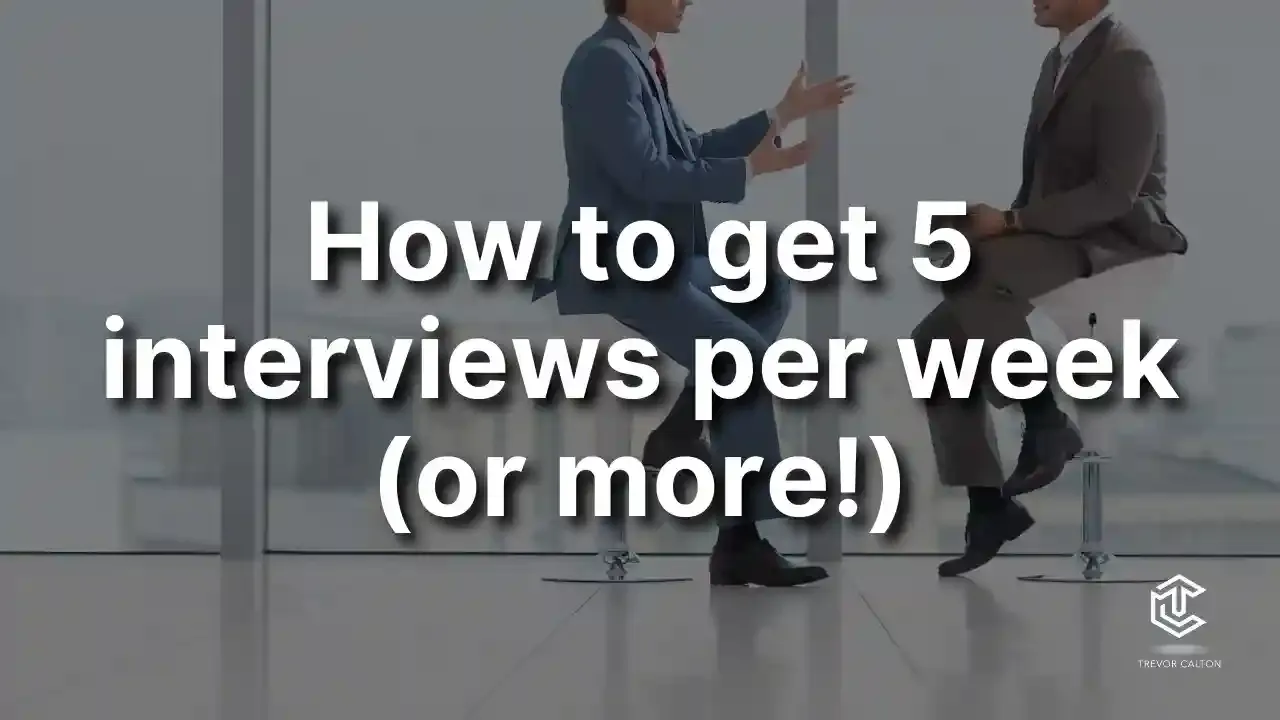How to Get 5 Interviews Per Week (or More!)

by Trevor Calton
Let’s be honest.
If your job search strategy is just applying to online listings and hoping for the best, you’re going to burn out fast, and probably hear crickets.
Because the truth is the best opportunities often don’t get posted. And when they do, they’re flooded with competition.
So how do you cut through the noise? How do you create momentum without applying to 50 jobs a week?
You stop chasing. And you start connecting.
The Secret Is This: Informational Interviews
These aren’t job interviews. They’re conversations.
Conversations with real people, about real roles, real companies, and real challenges.
And if you approach them right, they can turn into:
- Referrals
- Introductions
- Insider info
- And yes, actual interviews
Here’s How to Get 5 Conversations Per Week
Step 1: Build Your Target List
Forget mass applications. Start with 20 people you'd genuinely like to talk to:
- People working in companies or industries you admire
- Alumni from your school
- People in roles you’re curious about
- Former colleagues, mentors, or even past managers
Step 2: Reach Out the Right Way
Don’t ask for a job. Ask for perspective.
“I’m doing some career exploration and came across your profile. Would you be open to a quick conversation? I’d love to learn more about how you approached your transition into [their field].”
Keep it short, human, and specific.
Step 3: Track Your Outreach
Use a spreadsheet, CRM, or notebook. Track who you contacted, when, and what the outcome was.
Consistency beats perfection. If you message 3–5 people a day, you’ll start booking 5+ conversations a week, easy.
Step 4: Make the Most of Each Conversation
Don’t pitch yourself. Be curious. Listen.
Ask:
- “What do you wish you’d known before starting this role?”
- “What trends are you seeing in your field?”
- “What skills matter most in your team?”
Wrap up with a simple ask:
“Is there anyone else you think I should talk to?”
That’s how you keep the chain going.
This Isn’t Just About Getting Hired
These conversations build your confidence, your reputation, and your visibility. They teach you how to talk about your story in a way that resonates. And most importantly, they build relationships.
The Bottom Line
If you want to get hired faster, stop applying blindly. Start talking to people who already have the insight, access, and experience you need.
Five interviews a week isn’t a fantasy. It’s the byproduct of five conversations a week, done well.
CBIO Helps You Build This Engine From the Ground Up
Career Building from the Inside Out teaches you how to generate real opportunities, even if you don’t have connections, confidence, or clarity yet. Explore the system here
Want to teach this inside your company, college, or professional group? Book me to speak
Subscribe to
Career Building from the Inside Out
Get resources, motivation, guided activities, and other cool stuff delivered to your inbox:
We respect your privacy.

